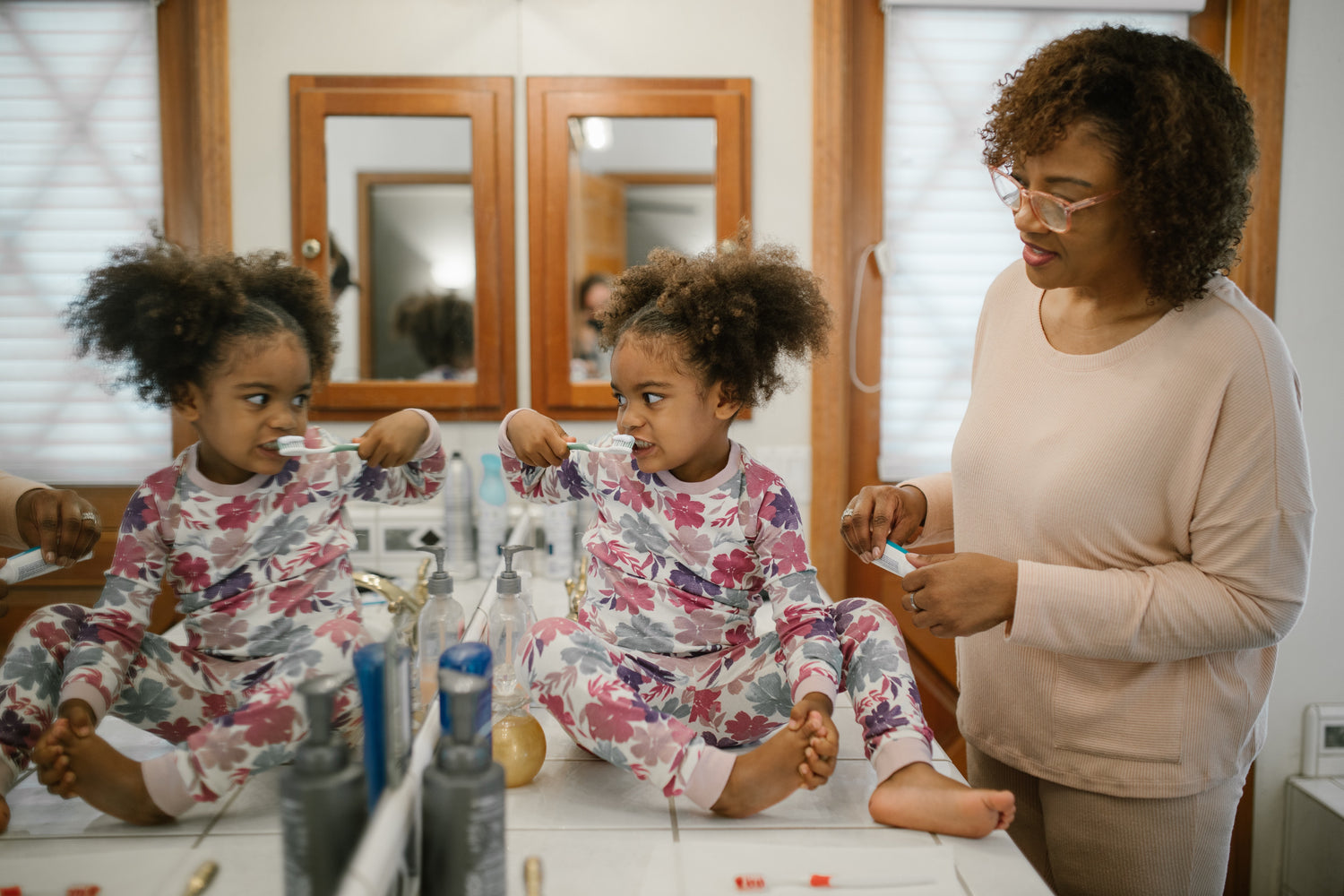Don't despair! If the battles over tooth brushing in the morning and evening exhaust you, there are some things you can do:
When you're getting ready in the morning, rushing to work, and your child refuses to brush his teeth, causing delays - it can be frustrating. After all, brushing teeth is a simple task that we all do as a daily ritual. So why do the little ones make it so challenging to cooperate?
Dana Hovsh, a certified parent educator from the Adler Institute and the Ministry of Education, explains that toddlers from about a year and a half old, due to their cognitive and motor development, begin to explore the world. Every experience is something new and exciting for them; they feel their power, discover their independence, and their desires (which may not always align with ours). Thus, their self-confidence grows. Alongside this, they test our reactions and look for boundaries - what is allowed and what is not, where the clear limits are, and where they can insist.
When does the difficulty start? When they want to do and decide everything on their own. They struggle and say a lot of things such as: "I don't want to!" or "I can do it alone!" while you, on the other hand, start losing patience and even resist. Since tooth brushing is non-negotiable, but you don't want to go through a battle every morning and evening, you surely seek a solution. So how can you help your child learn to brush his teeth willingly?
Explain your message:
For example, say, "I'm very concerned about your teeth. When you don't brush them and remove all the accumulated food, it can cause cavities and be painful." "Everyone brushes their teeth; that's how we maintain our health." In this way, you explain to your child and demonstrate through respectful communication that you want him to cooperate.
Offer the child choices:
Allow him to feel empowered by giving him a choice between two options, under your restrictions. For instance: "Today, you can decide which toothbrush/toothpaste we use for brushing," or "Do you choose the green toothbrush or the red one?"
Encourage independence:
Even from the age of half a year, you can let the child hold the toothbrush and play with it in the mouth space. From the age of about a year and a few months, the child can stand on a stool by himself, open the tap (carefully), and try to apply the toothpaste on the brush. Encouraging independence will lead him to the process and make him more cooperative.
Be creative:
Find a song that your child loves and use it as a tooth-brushing accompaniment. Let the child brush your teeth as well, suggesting he brings a doll to brush its (pretend) teeth, and more. Anything that works is commendable.
And if nothing works?
In any case, where it doesn't work - don't resort to force. His body is his own, and you should respect it. Explain to him reasonably and in terms he understands the consequences of not brushing his teeth: "If you don't brush your teeth, you won't be able to eat sweets because sugar hurts your teeth (a logical consequence). And if, despite that, he refuses, release him, and allow him not to brush his teeth today. However, don't allow him to have sweets, and talk to him gently, "I'm sorry, my sweet, you can't have sweets today because you didn't brush your teeth yesterday, but you can have one tomorrow after you brush them tonight. I trust that you will make the right choice." It's essential to be empathetic to his difficulty, share his sorrow, and offer an alternative option, like "Would you like to have an apple or a pear from the fridge?"
Be aware that the overt issue (refusal to brush teeth) may not be the real problem (difficulty with a sense of belonging), and the child may be struggling for power with his parents. In such a situation, seek parental guidance to avoid further conflicts in the relationship.
Jama App was created with the goal of providing support to mothers from birth to three years old and curating content, activities, expert tips, and videos to accompany them throughout this challenging period. All the content in the app is "Growing Together" with you, tailored precisely to your baby's developmental stages, ensuring that mothers receive only what is relevant and interesting to them at any given moment.
Jama App is the place for mothers to meet and connect with other moms, forming new and exciting friendships on this fascinating journey.
Join Jama and become part of the large community of mothers ♥️





Leave a comment
This site is protected by hCaptcha and the hCaptcha Privacy Policy and Terms of Service apply.